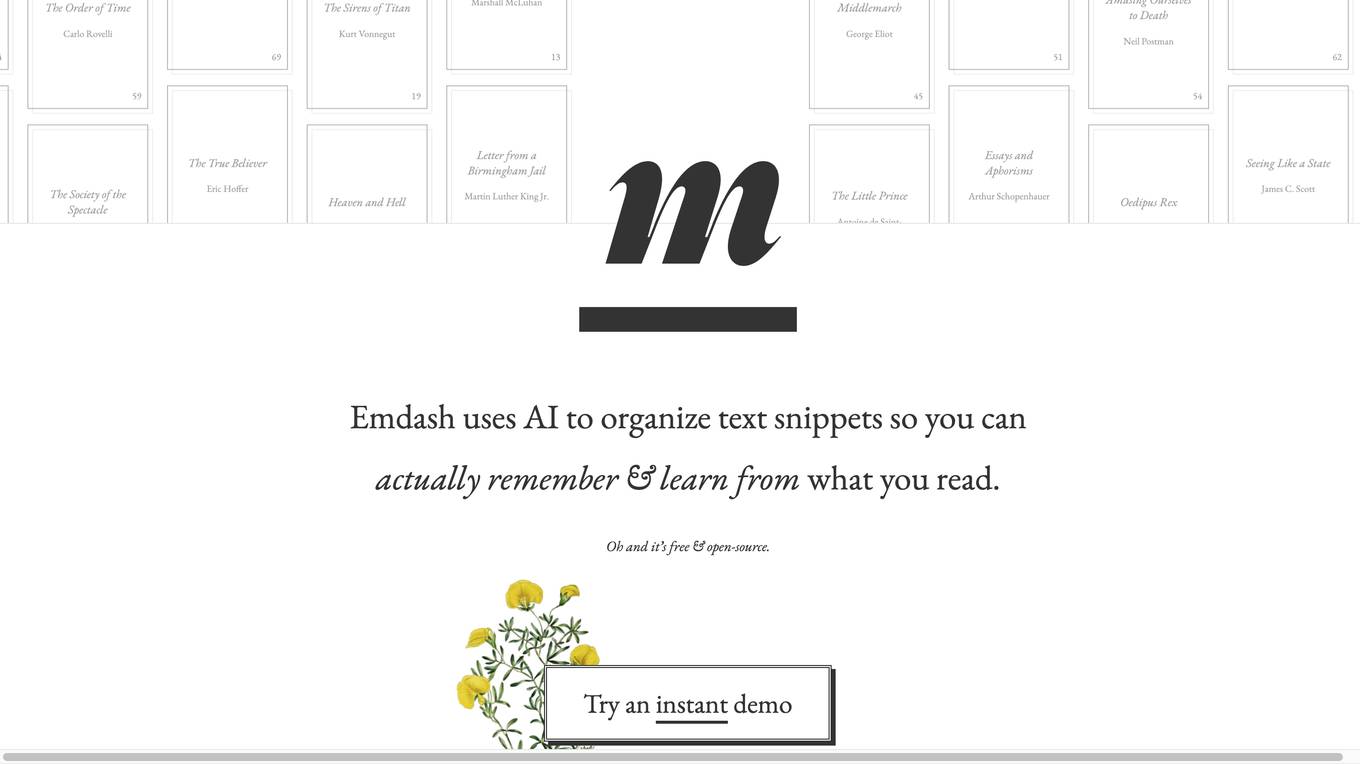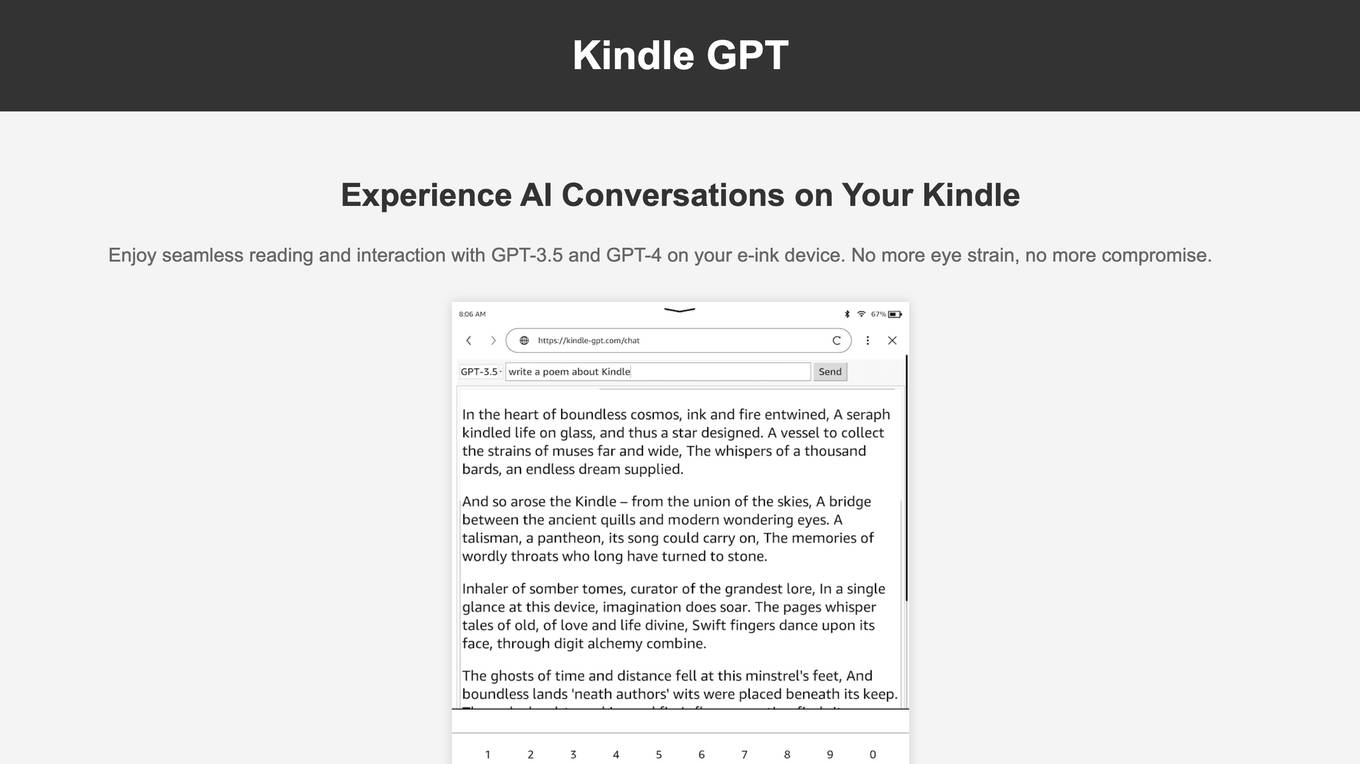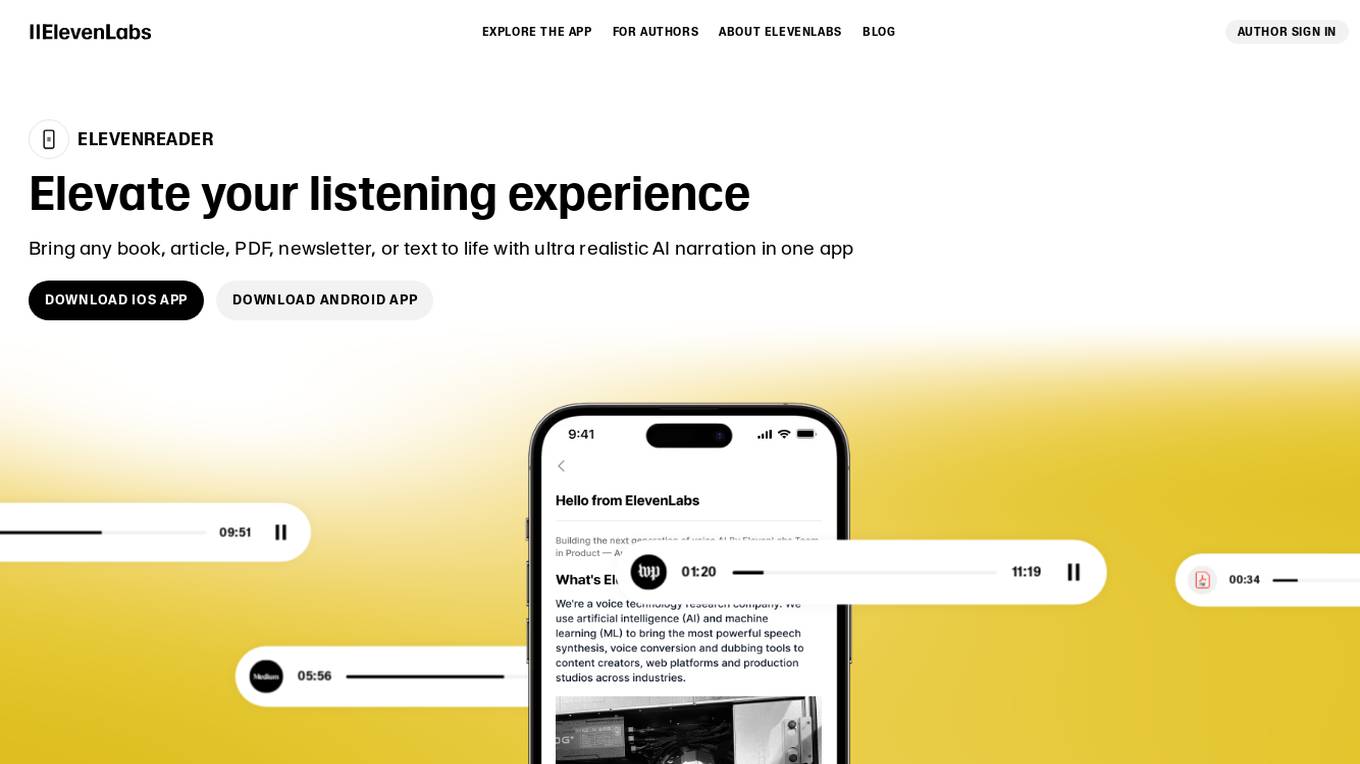Best AI tools for< Kindle Publisher >
Infographic
5 - AI tool Sites

Bibit AI
Bibit AI is a real estate marketing AI designed to enhance the efficiency and effectiveness of real estate marketing and sales. It can help create listings, descriptions, and property content, and offers a host of other features. Bibit AI is the world's first AI for Real Estate. We are transforming the real estate industry by boosting efficiency and simplifying tasks like listing creation and content generation.

Emdash
Emdash is an AI-powered tool designed to help users organize their book highlights effectively. By utilizing AI technology, Emdash can analyze text snippets, making it easier for users to remember and learn from their readings. The tool offers features such as conceptual cousins, instant semantic search, tagging, rating, note-taking, and reflection capabilities. Emdash is free, open-source, and allows users to export their organized data back to epub format for review on e-readers. Additionally, the tool promotes random discovery of forgotten ideas, rephrasing dense concepts with metaphors, and supports importing highlights from various sources like Kindle. Emdash prioritizes user privacy by conducting on-device analysis and offers the flexibility to opt into advanced features. Future updates include Monk-Mode Lenses for summarizing complex ideas, Socratic switch for book interviews, cross-device syncing, backup, and publishing or sharing excerpts.

404 Not Found
The website appears to be encountering a 404 error, indicating that the requested URL was not found on the server. This message typically occurs when a user attempts to access a page that does not exist or has been moved. It is recommended to verify the URL for any typos and attempt to access the correct page.

Booknotes
Booknotes is an AI-powered platform that provides concise and insightful summaries of popular nonfiction books. With Booknotes, you can quickly grasp the key ideas and takeaways from best-selling books in just 15 minutes or less. Our summaries are written by experts in their respective fields and are designed to help you learn and grow without having to spend hours reading entire books.

ElevenReader
ElevenReader is a free read-aloud text app that elevates your listening experience by bringing any book, article, PDF, newsletter, or text to life with ultra-realistic AI narration. With a vast collection of literary classics, newsletters, and articles narrated with AI audio, ElevenReader offers a personalized audio experience with high-definition voices in 32 languages. Users can import their own content, create smart podcasts, and enjoy bimodal listening with synchronized highlighting. The app also features iconic voices and is available on iOS and Android devices.
0 - Open Source Tools
3 - OpenAI Gpts

Kindly Quill
Your snarky, kind-hearted porcupine, expert at softening words with positively and understanding.

Kindly Mom
A nurturing and supportive virtual mother, offering positive and empathetic advice.
